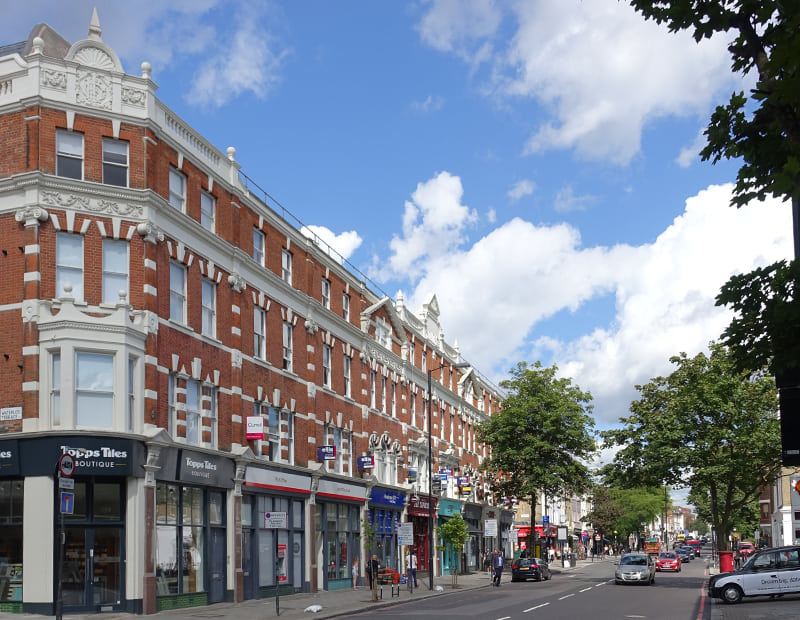Islington Upper Holloway’s Urban Symphony: A Guide to Building Regulations
The melody of hammers and the rhythm of saws soon might fill the air of Upper Holloway, Islington, as your vision for a new building project takes root. But before the construction concerto begins, understanding the local building regulations is akin to mastering the architectural score. This in-depth guide will equip you, the developer or homeowner, to navigate the symphony of regulations and ensure your Upper Holloway project plays in perfect harmony with the borough’s planning directives.
The Borough’s Orchestra: Islington Council Sets the Tone
Islington’s Council’s Planning and Building Control department acts as the conductor, overseeing the entire development performance in Upper Holloway. Their objective is to ensure every new structure complements the existing architectural movements and adheres to the borough’s safety, accessibility, and aesthetic standards.
The Architectural Score: Key Regulations for Your Upper Holloway Composition
Several regulations act as the sheet music for your Upper Holloway project, depending on its complexity and scale. Here’s a breakdown of the key movements you’ll encounter:
- Building Regulations: These nationally mandated regulations, orchestrated by the Ministry of Housing, Communities & Local Government, establish the minimum performance standards for all buildings in England. They encompass the structural integrity, fire safety, energy efficiency, ventilation, drainage, and disabled access, forming the foundational chords of your project.
- Islington Local Plan: This document serves as the borough’s development manifesto, outlining Islington Council’s vision for Upper Holloway’s future. It details zoning restrictions, building heights, permitted uses (think residential or commercial), and architectural considerations that ensure your project blends seamlessly with the area’s existing architectural movements. Imagine it as the stylistic guide for your composition.
- Conservation Areas: Certain pockets of Upper Holloway might be designated as Conservation Areas. In these areas, stricter adherence to specific architectural styles and materials is required, ensuring your project respects the established historical or cultural harmony of the neighborhood. Think of it as a specific musical era your development needs to subtly reference.
Obtaining the Permits: Securing Your Performance License
Before any construction commences in Upper Holloway, obtaining the necessary permits from Islington Council is paramount. Here’s the stage direction for this crucial step:
- Pre-Application Enquiry: Initiate a pre-application consultation with the Council’s planning department. This acts as a pre-performance check, providing valuable feedback on the feasibility of your project and identifying potential regulatory hurdles you might encounter.
- Building Notice: For minor works that fall within the scope of the Building Regulations, a Building Notice application serves as your green light. This streamlined process informs the Council of your intent to proceed and allows them to conduct inspections throughout construction, ensuring your project stays on key.
- Planning Permission: For more ambitious projects, including new builds, extensions exceeding a specific size, or alterations impacting the building’s exterior, a formal planning application is required. This comprehensive process involves detailed plans, architectural drawings, and supporting documents that showcase your project’s vision and demonstrate its alignment with Islington’s planning directives. It’s akin to submitting a full score for approval.
Additional Considerations: The Project’s Encores
- Listed Buildings: If your project involves a listed building, a structure with significant historical or architectural merit, even minor alterations necessitate additional permissions and consultations with specialist heritage bodies. Think of it as incorporating a cherished melody from the area’s past into your new composition.
- Party Walls: If your project involves shared walls with neighboring properties, the Party Wall Act 1996 dictates the legalities and procedures required to ensure safe and considerate construction practices that protect adjoining structures. Imagine it as a harmonious duet between you and your neighbors.
Resources and Support: The Borough’s Repertoire for Success
Islington Council’s Planning and Building Control department offers a treasure trove of resources to guide you through the building regulations symphony. Their website provides downloadable application forms, informative guides, and online planning tools – akin to sheet music templates and online tutorials. Additionally, their planning officers act as your mentors, available for consultations to answer your specific questions and offer project-specific advice.
Here are some helpful links:
- Islington Council Planning Portal: https://www.islington.gov.uk/planning
- Planning Application Guidance: https://www.islington.gov.uk/planning
- Building Control Information: https://www.islington.gov.uk/
By familiarizing yourself with Islington Upper Holloway’s building regulations and collaborating with the Council’s planning department, you can embark on your construction project with confidence. Remember, a well-planned and compliant development not only ensures a smooth building process but also contributes to the continued vibrancy and architectural legacy of Upper Holloway. So get ready to raise the curtain on your project and let your Upper Holloway symphony begin!
Beyond the Sheet Music: Addressing the Upper Holloway Project’s Acoustics
Understanding the building regulations is just the first movement in Upper Holloway’s development symphony. As you delve deeper into the project, consider these additional factors that will influence the success of your architectural composition:
- Community Engagement: A successful development in Upper Holloway strikes a harmonious chord with the existing residents. Proactive community engagement fosters a sense of ownership and minimizes potential conflicts. Consider hosting open forums, creating online communication channels, and showcasing your project’s vision to the neighborhood. This transparency builds trust and ensures your development resonates positively with the local audience.
- Sustainable Practices: Today’s construction world emphasizes environmental responsibility. Explore incorporating sustainable materials and practices into your Upper Holloway project. Consider energy-efficient technologies, water conservation measures, and the use of recycled or locally sourced building materials. By adopting a sustainable approach, you can ensure your project plays a harmonious note in the environmental symphony of the borough.
- Accessibility Considerations: Building regulations mandate a baseline level of accessibility, but going a step further ensures inclusivity for all. Incorporate wider doorways, ramps, and accessible bathroom facilities to create a development that welcomes everyone. This demonstrates social responsibility and ensures your project resonates with a broader audience.
The Encore: A Legacy Built in Upper Holloway
By following this comprehensive guide and collaborating with Islington Council, you can ensure your Upper Holloway project adheres to all regulations and becomes a valuable addition to the neighborhood’s architectural tapestry. Remember, a well-designed and compliant development not only offers functional living or working spaces but also contributes to the lasting character and charm of Upper Holloway. So, go forth, maestro, and conduct your development symphony! With careful planning and attention to detail, your Upper Holloway project will leave a lasting and positive mark on the borough’s ever-evolving architectural composition.



Comments are closed